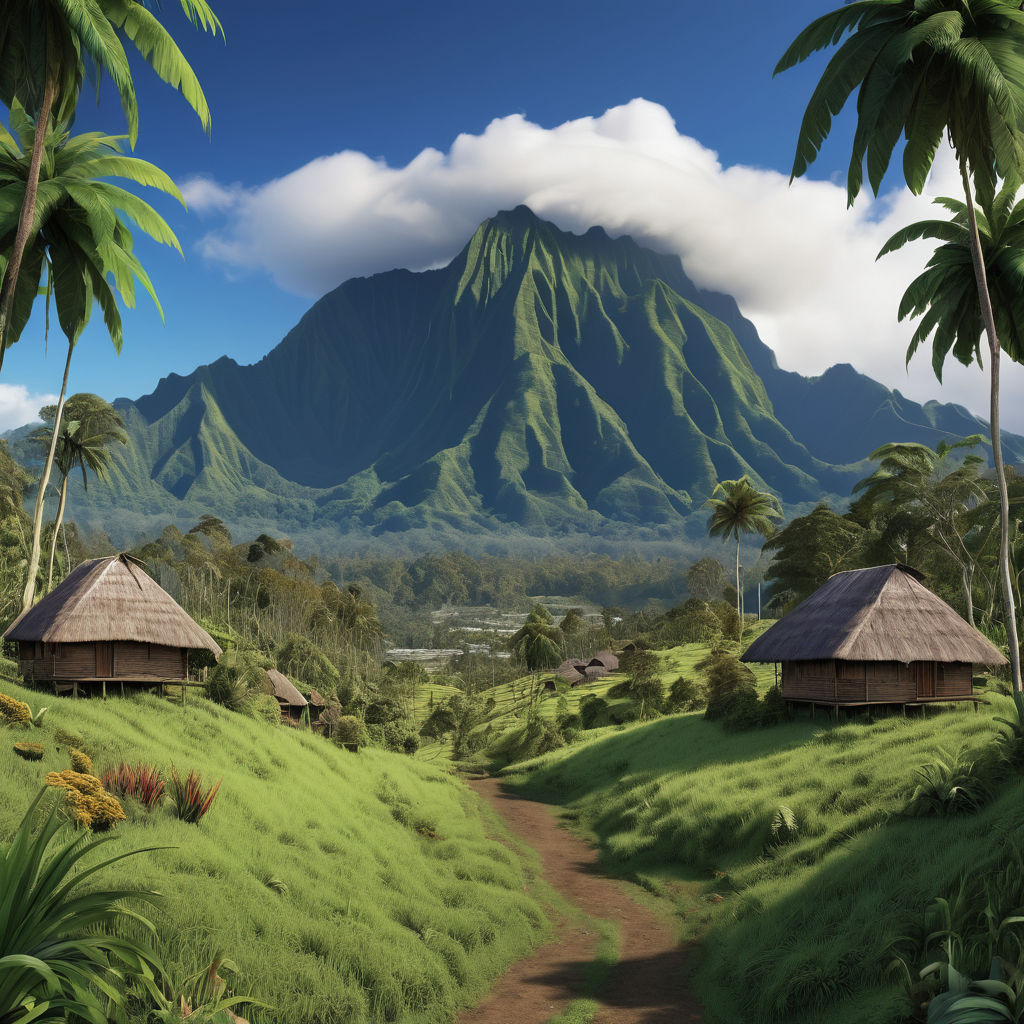Introduction to Papua New Guinea: A Cultural Mosaic
Explore Papua New Guinea: Traditions, Diversity, and Modernity

Introduction to Papua New Guinea
Papua New Guinea (PNG) is a unique and culturally rich country located in the southwestern Pacific Ocean. It occupies the eastern half of the island of New Guinea, with Indonesia on the western half, and includes numerous offshore islands. PNG is renowned for its diverse cultures and languages, with over 800 languages spoken across its various regions. The capital city, Port Moresby, is the largest urban center and the economic, political, and cultural hub of the nation. Other significant cities include Lae, Mount Hagen, and Madang. PNG’s cultural heritage is a vibrant mosaic of its many indigenous groups. Traditional music, dance, and art are deeply embedded in the daily lives of Papua New Guineans. The country is famous for its cultural festivals, such as the Goroka Show and the Mount Hagen Cultural Show, which showcase the traditional attire, songs, and dances of its numerous ethnic groups. The country's cuisine, featuring staple foods like sago, taro, yams, and various seafood, reflects its agricultural and coastal living practices.
Cross-national and Cross-cultural Understanding
Papua New Guineans generally exhibit a welcoming and open attitude towards other cultures, shaped by the country's history of trade and colonialism. The people of PNG value cross-cultural understanding and actively engage in cultural exchanges, educational programs, and international partnerships that promote mutual respect and learning. Cultural exchanges are a significant aspect of life in PNG. The country hosts various festivals and events that celebrate both local and international traditions. For instance, the Hiri Moale Festival in Port Moresby commemorates the traditional trading voyages between the Motuans of PNG and their neighbors, fostering cultural exchange through traditional ceremonies and performances. Additionally, PNG’s participation in regional organizations such as the Pacific Islands Forum facilitates cultural and educational exchanges. Educational programs in PNG emphasize global awareness and cross-cultural understanding. Schools and universities incorporate multicultural perspectives into their curricula, encouraging students to appreciate and respect diversity. The University of Papua New Guinea collaborates with international institutions to facilitate student and faculty exchanges, enriching the educational experience and fostering global connections.
Interactions and Social Dynamics
Typical interactions between Papua New Guineans and foreigners are characterized by warmth, respect, and a strong sense of community. Social behaviors in PNG reflect a blend of traditional customs and contemporary influences, emphasizing respect for others, hospitality, and communal living. Communication styles in PNG are generally informal and friendly. Tok Pisin, English, and Hiri Motu are the official languages, but numerous indigenous languages are also widely spoken. This multilingualism facilitates interactions with tourists and expatriates, making it easier for them to integrate into the local community. Cultural norms in PNG place a strong emphasis on respect for elders, community involvement, and a relaxed approach to time. These norms create a welcoming and inclusive atmosphere for foreigners, who often find it easy to adapt to the local way of life. Public displays of affection are generally modest, reflecting the country’s traditional values, but social gatherings and communal activities are vibrant and inclusive.
Views on Dating and Relationships
Attitudes towards dating and relationships with foreigners in PNG are generally open and accepting, though influenced by cultural and traditional norms. Papua New Guineans recognize the opportunities for cultural exchange and personal growth that such relationships can bring. However, traditional customs and values play a significant role in shaping these views. Family involvement is significant in relationships in PNG, with elders often playing a crucial role in the approval process. Traditional customs emphasize respect, patience, and the gradual building of trust in relationships. While modern dating practices influenced by global trends are becoming more common among younger generations, traditional values still hold sway in many communities.
Marriage and Family
Marrying a foreigner in PNG involves navigating both legal and social considerations. Legally, the country has clear regulations governing marriage, including residency requirements and the need for proper documentation. Socially, cross-cultural marriages are generally accepted, though couples may face challenges related to cultural differences and integration. Familial acceptance is a key factor in cross-cultural marriages. PNG families can be protective, and gaining their approval is often essential for the relationship's success. However, the diverse cultural landscape of PNG means that many families are already familiar with and accepting of different cultural backgrounds, which can facilitate smoother integration for foreign spouses. Trends in cross-cultural marriages reflect PNG's open and inclusive society. Many Papua New Guineans who travel abroad for education or work form relationships with individuals from various cultures, bringing back diverse customs and traditions that enrich the local community.